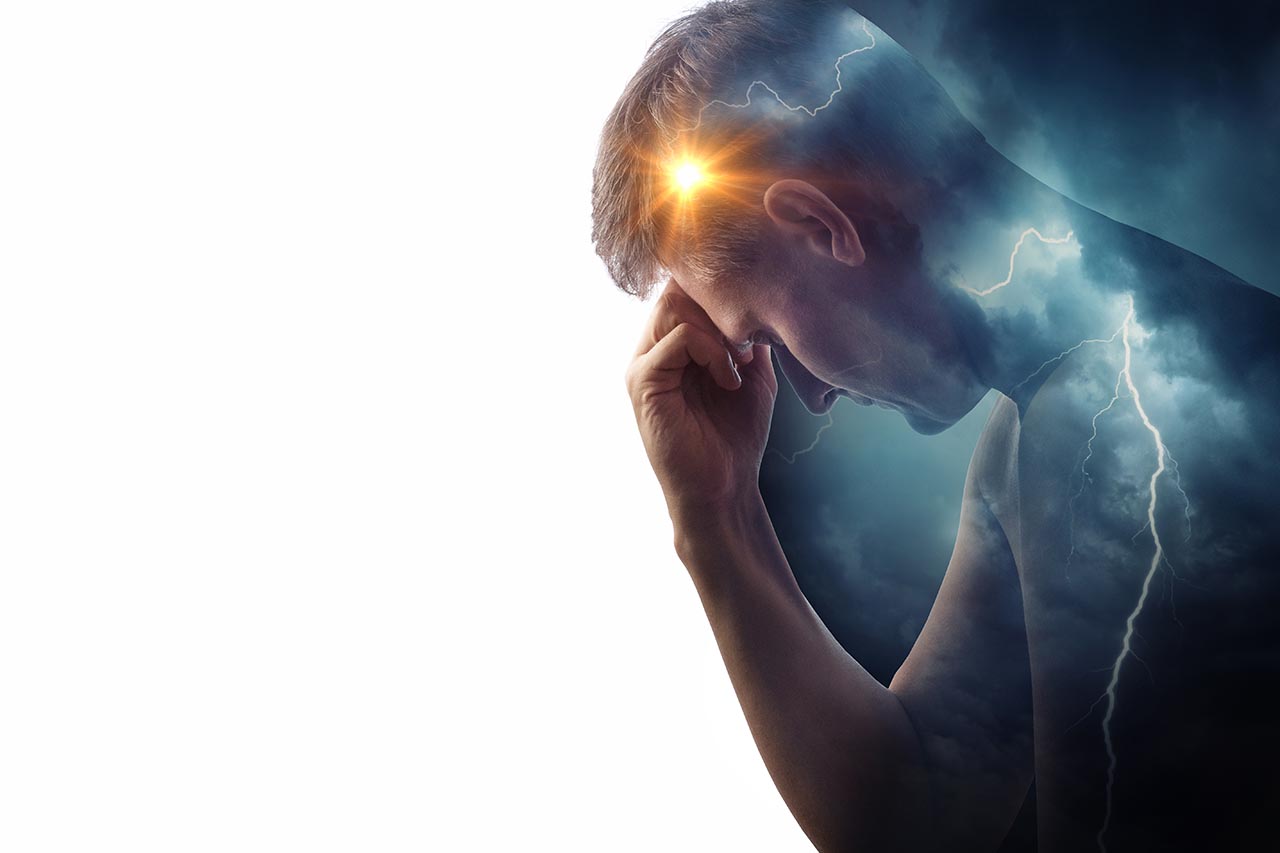Post-traumatic stress disorder is basically an outcome of a terrifying life event that disturbs a person both emotionally and mentally. This traumatic stress leads to psychological shocks, and the flashbacks of the event trigger a set of intense emotional responses.
It is a very common emotional disorder and also a major public health issue in the US. The country annually reports more than 3 million cases. Emotional instability also influences routine activities and interactions with others. Women are more likely to experience such emotional disorders as compared to men.
Table of Contents
Impact of Emotional Trauma Over Mental Health
An emotional trauma directly influences brain and mental health. Some of the most prominent ways it impacts mental health are as following
1. Self-Destructive Emotions
As a result of immense stress due to emotional trauma, a person is more likely to experience self-destructive emotions. Sometimes it becomes so hard to deal with the stress that ending your own life seems an easy way out of it. A person may even think of different ways to end his life and may even practically attempt to end his life.
2. Alcohol And Drug Abuse
In order to deal with post-traumatic stress, many people get into addiction. Alcohol and other drug addiction become a way out of all the stress and emotional pain for such people. However, this would further add to mental problems instead of doing any good.
Addiction not only damages the brain and the brain-related functions, but it is also very damaging for bodily health. Therefore, seeking help in order to get rid of such addiction may help out. There are a number of facilities that allow you to assess current conditions.
In order to figure out if you are really struggling with alcohol or drug abuse, one may go through an online test. These types of online assessments for addiction are specially designed that provide an insight about the patient, and then treatments are suggested accordingly.
3. Sadness
A human mind responds to emotional stimuli through responses such as feeling happy, sad or excited. However, in order to deal with post-traumatic stress, the brain may result in a prompt sensation of sadness. Due to this sadness, a person may even lose interest in routine activities.
4. Low Confidence
A person might even struggle with self-esteem and self-confidence. This is another major aspect through which post-traumatic stress impacts the brain and brain patterns. Socializing becomes troublesome as one loses self-confidence. In many cases, a person usually isolates himself due to a lack of confidence.
5. Separation
Many times a separation between body and mind results due to uncontrolled emotional stress. In such a situation, a person feels separated from the surrounding world. A person loses interest in almost everything around him and, as a result, could not connect to anything around him. Everything good or bad becomes meaningless to him
6. Hyper Arousal
Another major drawback of post-traumatic stress is hyper-arousal. Hyper-arousal is when a person abruptly gets into the flight phase and becomes extremely alert. A person may exhibit extreme responses to a situation. A person abnormally becomes vigilant and irritable
7. Rest Issues
Flashbacks of emotional trauma may also influence sleep patterns. Many people thus face rest issues. Managing a sound sleep, falling asleep becomes very hard. Also, fear of nightmares disturbs sleep cycles and makes it hard to secure healthy and sound sleep.

Five Signs Of Post-Traumatic Stress Disorder
Feeling stressed about different situations, matters and aspects of life are very common. However, there are five distinct signs which differentiate usual stress from post-traumatic stress. Let us get through these signs to understand more about such emotional traumatic stress.
1. A Life-Threatening Event
After experiencing or witnessing a tragic event, the brain of the victim develops a perceives that event as a life-threatening event. Though it is not actually a life-threatening event, a person perceives it as life-threatening. It is due to immense fear that a person develops after that specific mishap.
2. Internal Reminders Of The Event
A brain develops a certain set of internal reminders such as flashbacks and nightmares. These flashbacks and nightmares are followed by episodes of immense stress and abrupt behavioral patterns. These reminders are very real, and a person feels as if he is going through that specific life-threatening event again.
3. Avoidance Of External Reminders
Usually, people going through traumatic stress avoid reminders of the event. The external reminders, in many cases, are triggers and may even initiate phases of anxiety and stress episodes. For instance, it is very common that a person never drives a car himself following a car accident. Such avoidance is actually the response of the brain to avoid experiencing the same painful event.
4. Altered Anxiety State
A person might appear more vigilant, cautious and protective than usual. The internal anxiety of a person is also evident through the person‘s behavior. A person experiencing such a traumatic disorder might always seek out possible dangers around him.
5. Mood And Though Changes
The unusual changes in the thinking pattern of the brain result in sudden mood changes in such people. It is very common for such people to go into depression. They may even isolate themselves in order to keep themselves safe from outside dangers. Outrageous behavior might also be observed in a few cases. Such people are at a higher risk to develop other psychological and behavioral issues.
When To See Doctor
Such traumatic stress is a complex and complicated condition that cannot be cured. It is because there is no scientific way to remove traumatic memories from an individual’s mind. However, a blend of treatment and therapy can really help such people to move forward in life healthily. Normally cognitive behavioral therapy is used for such patients.
Take Away
Post-traumatic stress disorder is a common psychological problem that occurs as a person goes through an unbearable emotional trauma. There are many ways such trauma affects the mental health and behavior of a person. However, one may control the condition with the help of treatment.



:max_bytes(150000):strip_icc()/labgrownlede-2b7540f7f7404558a08f1a555862f3d3.jpg)









